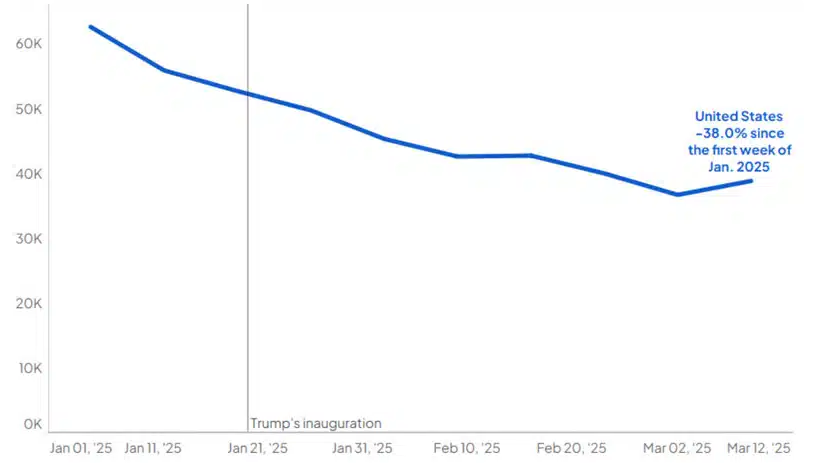The United States government has announced new directives that will subject student visa applicants to additional scrutiny, a move that is likely to further deter international students from choosing the US as their study destination.
The new directives, which were announced by Secretary of State Marco Rubio, instruct US visa offices to apply an additional level of scrutiny to visa applicants, including a mandatory social media check for certain students. The move is part of the Trump administration’s efforts to tighten immigration policies and prevent individuals who may pose a threat to national security or public safety from entering the country.
The new directives are likely to create further confusion and uncertainty for prospective international students considering study in the US. The move comes at a time when demand for US study programs is already showing signs of softening, particularly from key markets such as India, China, and the Middle East.
According to a recent report by a source, search volumes for US study programs have declined significantly in recent months, with a 38% drop in demand for advanced degrees. The report also notes that demand from key markets such as India, Bangladesh, and Iran has declined sharply, with Iran showing the largest decline at 61.2%.

The decline in demand for US study programs is attributed to a range of factors, including the Trump administration’s restrictive immigration policies, rising tuition fees, and increasing competition from other study destinations such as Canada, Australia, and the UK.
The new directives announced by Secretary Rubio are likely to further exacerbate the decline in demand for US study programs. The directives instruct US visa offices to refer certain student visa applicants to the Fraud Prevention Unit (FPU) for a mandatory social media check. The move is part of the Trump administration’s efforts to prevent individuals who may pose a threat to national security or public safety from entering the country.
The social media check will involve reviewing the applicant’s social media profiles to identify any potential security threats or concerns. The move has been criticized by civil liberties groups, who argue that it stifles campus speech and has led to several lawsuits.
In addition to the social media check, the new directives also instruct US visa offices to apply an additional level of scrutiny to student visa applicants who have previously held a student or exchange visa between October 7, 2023, and August 31, 2024, or had their visa terminated between October 7, 2023, and the present.
The new directives are likely to create further uncertainty and confusion for prospective international students considering study in the US. The move comes at a time when the US is already facing major competition from other study destinations, and is likely to further deter international students from choosing the US as their study destination.
In a statement, NAFSA CEO Fanta Aw noted that international students and their families seek predictability, security, and a welcoming environment when choosing where to study. “The US government’s recent actions have created an atmosphere of fear and confusion that has students, scholars, and their families understandably concerned about their safety and future in the United States,” she said.
The decline in demand for US study programs is likely to have significant implications for the US education sector, which relies heavily on international students for revenue. According to a recent report by the National Association of International Educators, international students contribute over $40 billion to the US economy each year.
In addition to the economic implications, the decline in demand for US study programs is also likely to have significant implications for the US’s global competitiveness. The US has long been a leader in international education, attracting top talent from around the world. However, the decline in demand for US study programs is likely to erode the US’s competitive advantage in this area.
In conclusion, the new directives announced by Secretary Rubio are likely to further deter international students from choosing the US as their study destination. The move comes at a time when demand for US study programs is already showing signs of softening, and is likely to have significant implications for the US education sector and the country’s global competitiveness.


